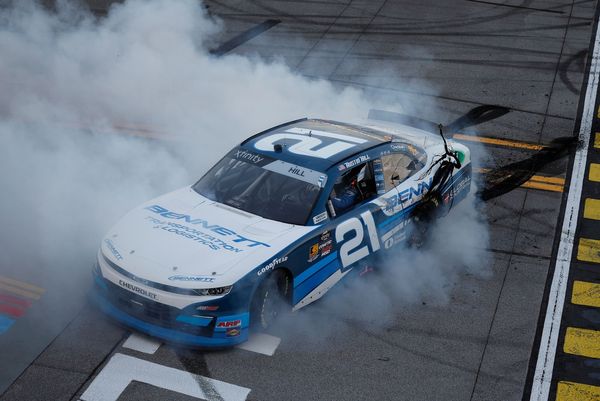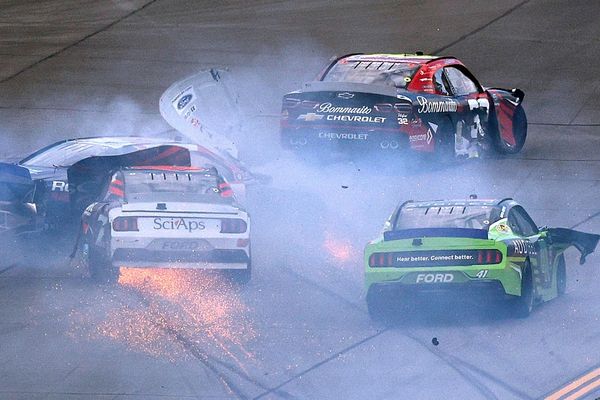Lorne Michaels — creator, executive producer and showrunner of NBC's popular "Saturday Night Live" — started out in show business as a comedian. But even back in his early performing days, his top talent was that of a producer.
He was always sharp at spotting really good performers.
Take his early partnership with Hart Pomerantz, a lawyer who aspired to be a comedian. Both attended the University of Toronto. In 1963, a comic revue written by Michaels caught the eye of the Canadian Broadcasting Corp., or CBC. Michaels looked for a way to capitalize.
"Michaels came to one of the shows I did at the University of Toronto, where I did comedy and monologues," 83-year-old Pomerantz told Investor's Business Daily. "He saw I was funny and called me at my law office and said, 'Do you want to be in showbiz with me?'"
Find Your Strength Like Lorne Michaels
Pomerantz said yes to Michaels' offer. In the new comedy duo, Michaels — now 80 years old — was the straight man. Pomerantz was the funny one.
"Lorne was my straight man. He was very good. He had the ability to ask the right questions and make it all sound legitimate," Pomerantz told IBD.
Michaels described their act to David Letterman in 1983. "It was, sad to say, a comedy act. As you can see, there's almost no trace of that left in me," Michaels said, looking downcast as Letterman's audience laughed.
"I began writing with (Pomerantz) in Canada, and we would write and perform ourselves. I was not great at the performing. My part was mostly asking questions. But I sort of knew what the answers would be, and I'd say stuff like, 'Oh, really?' I was the pacer. He (Pomerantz) was very funny. I would take the pause moment in between (questions and answers) and — sort of — support him during that. Then I began to get more and more interested in producing here, and comfortable there (with that)."
Their collaboration lasted about six years, Pomerantz recalls. They co-hosted the CBC's "The Hart & Lorne Terrific Hour" on TV and they wrote for and performed man-on-the-street bits on "The Russ Thompson Show" on CBC radio. Next, they landed work in the U.S. as writers for "The Beautiful Phyllis Diller Show" due to one joke that Pomerantz wrote: "I was driving through the Catskill Mountains. I knew I was in a small town when I saw a sign that said, 'Sam's Hospital — and Grill.'"
After that, they wrote for the popular sketch comedy show "Rowan & Martin's Laugh-In" and for marquee comedians Joan Rivers and Woody Allen.
Make Adjustments To Succeed
In those early days, Pomerantz recalls Michaels "was a hippie before I knew what the word meant." Like many baby boomers, Michaels used cocaine, marijuana and hallucinogenic mushrooms as a young man, according to the New York Times. Michaels has also reportedly given up those indulgences as well as tobacco cigarettes.
Also in their early years, Pomerantz never gave up law. He was Michaels' lawyer when Michaels legally changed his last name from his original Lipowitz. "I think he thought Michaels was a better showbiz name," Pomerantz said.
But Michaels and Pomerantz never quite hit it big themselves even when they wrote for headliners. Meanwhile, the clock was ticking for Pomerantz. He was a married father who craved financial stability, which a career in law offered. And he would be home with his family. "Lorne invited me to go to New York with him for some other showbiz opportunity," Pomerantz said. "I said I didn't want to go with him, so he said, 'I'll go alone.'"
That trip to New York morphed into "Saturday Night Live," also known as SNL.
Find A Better Way Like Michaels
Michaels was 30. NBC wanted a show to replace reruns of "The Tonight Show" on Saturday nights. Dick Ebersol, an acclaimed veteran of live sports programming, was NBC's point man. Learning about Michaels' comedic track record, Ebersol hired Michaels.
"Lorne ... wanted to have the first television show to speak the language of the time. He wanted the show to be the first show in the history of television to talk — absent expletives — the same language being talked on college campuses and streets and everywhere else," Ebersol told authors Tom Shales and James Andrew Miller in 2015.
But when they heard the pitch, traditional NBC executives were appalled. Larry White, head of NBC programming, said, "That's the worst idea I've ever heard in my life," according to Shales and Miller.
Still, Michaels is a world-class communicator. In subsequent pitch meetings, when it came to what would become hallmarks of SNL — sympathetic drug references, off-the-cuff profanity, a hip attitude toward sex and cutting political satire — Michaels "prudently kept that all to himself," the Wall Street Journal reported.
Adjust To Your Audience
Michaels overcame the generation gap and sold NBC on his vision for SNL.
"The show looks a little rundown and ragged," Michaels told Rolling Stone. "That's the look I wanted." He wanted SNL to appear as beleaguered as parts of its then-bankrupt New York City home base.
He also began to assemble the Not Ready for Prime Time Players, who included Dan Aykroyd, John Belushi, Chevy Chase, Jane Curtin, Garrett Morris, Laraine Newman and Gilda Radner.
From its debut, the show took off. It tweaked its name. (Its original title was "NBC's Saturday Night.") Michaels has been at the helm for the entire 50-year run except for five years starting in 1980 due to burnout.
Tap Your Super-Talents
Michaels has two superpowers, says Susan Morrison, an editor for The New Yorker who recently published a biography of Michaels. One is his eye for talent. His other is a knack for getting the most out of people. "He doesn't have a one-size-fits-all approach," Morrison told IBD. "He treats people according to how he thinks he's going to get the best out of them."
Some of those superpowers came from his grandparents, who owned a movie theater. "They sat around the kitchen table talking about which movies to book," Morrison said. "They had a real feel for what movies people wanted to watch. That's a wonderful attribute for a good producer."
Survive By Staying With The Times
Also, as television got more popular, his grandparents joked about how aging former vaudeville stars like George Burns and Jack Benny dyed their hair or got toupees to conceal their white hair or balding pates.
"This eight-year-old boy understood the Darwinian aspect of show business, of how you have to adapt to the new medium, the new technology and the new audience" to survive, no matter how famous you were decades earlier, Morrison said.
If Michaels is the ringmaster of SNL, that role has roots in history. When Michaels was 14, his father died of a blood blockage in a lung. "I think he felt that his family kind of imploded when his father died. And there (are) definitely many, many people who talk about him as a father figure."
In addition to SNL, Michaels is the top boss of such shows as "Late Night," "The Tonight Show Starring Jimmy Fallon," "Coneheads" and "The Kids in the Hall."
Keep Your Formula Fresh
And what about the chronic complaint that SNL is not as funny as it was in its earliest years? NBC has thought about replacing Michaels, Morrison says. The network has looked at people such as (comedic writer-director-producer) Judd Apatow as a potential replacement, Morrison says.
"Judd thought that (the back-channel exploration by NBC) was pretty creepy. He didn't want anything to do with it," she said.
"Lorne, the way he responded to that stealth attack on the part of the network, it's really what has kept him going all this time. (Michaels) knows it's a long game," Morrison added. "He keeps his head down. He has an enormous capacity for survival."
Lorne Michaels' Keys:
- Creator of "Saturday Night Live" and winner of 21 Emmy Awards for the show, which just wrapped up its 50th year.
- Overcame: Initial resistance to edgy content on network TV.
- Lesson: "The show doesn't go on because it's ready; it goes on because it's 11:30."







